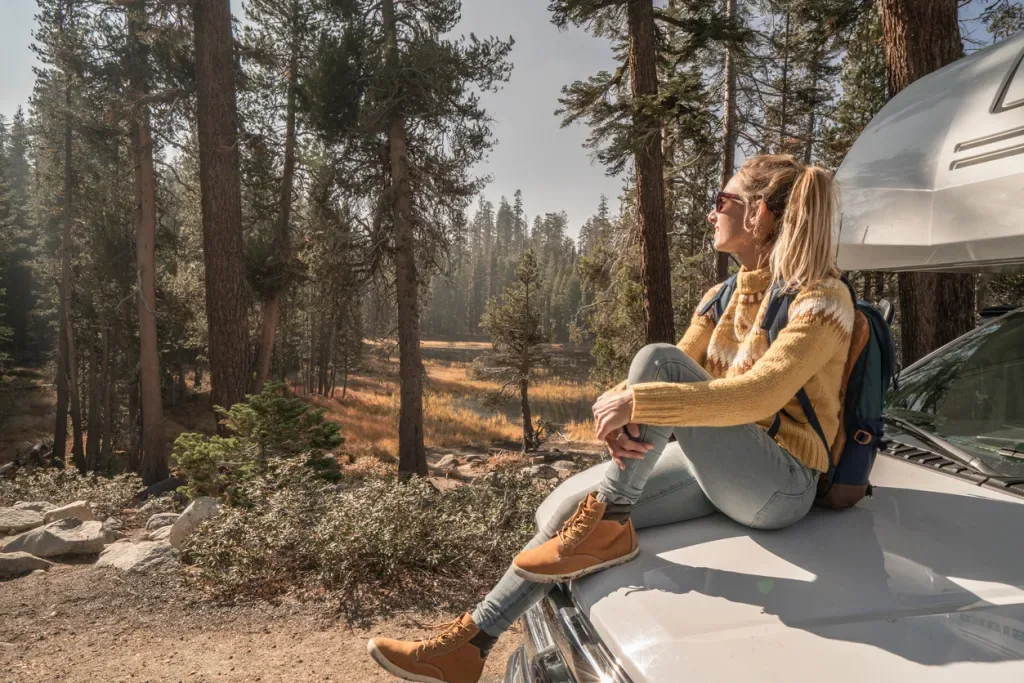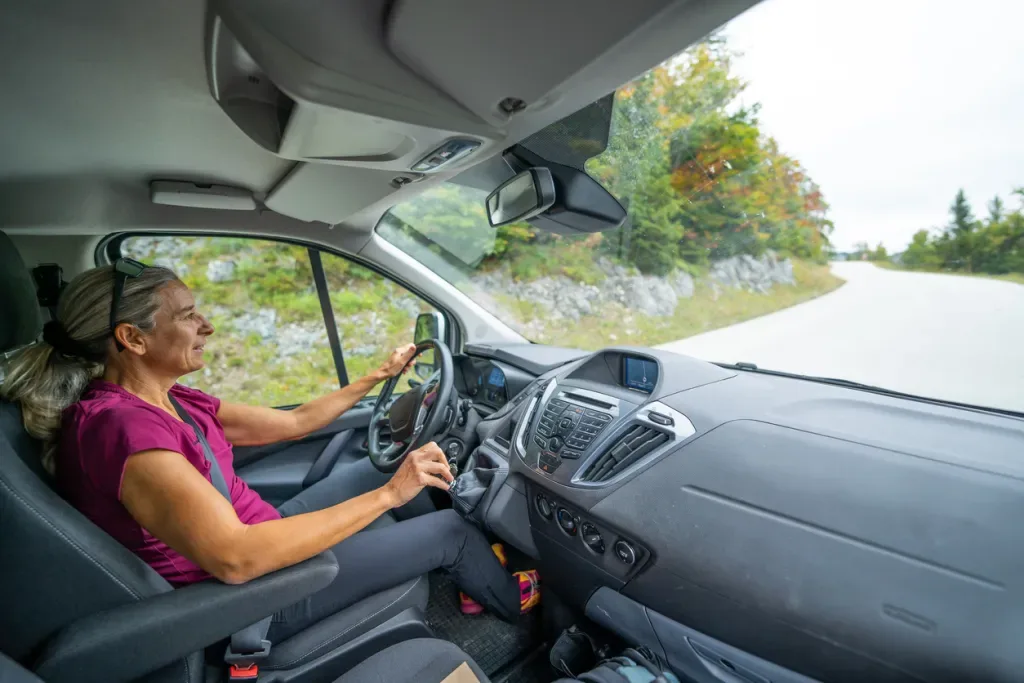Many couples set off to travel together but eventually embrace solo adventures. The potholes of life and tiny living are challenging to handle.
This is often an emotional and stressful transformation to make. However, there are several things you can do to make it as smooth as possible.
Today, we’re sharing five ways to transition from journeying as a couple to individually. You may have a broken heart, but it doesn’t have to be the end of the road.

Making the Transition to Solo Travel
Relationships can be tricky, whether you’re traveling or not. While the lifestyle is incredibly fulfilling, it can also be unpredictable and chaotic. Sometimes, dealing with these issues is enough to test even the strongest relationships. In addition, a variety of changes can lead to a shift.
Breakups, divorce, or the death of a partner can cause a change from couple to solo travel. It isn’t always ideal, but an unexpected fork in the road can result in twosomes going their separate ways.
It may feel like a dead end, but it doesn’t have to be. Here are several ways you can easily transition into adventuring on your own.
#1 Join a Solo Travel Community
Many solo travel communities might help you avoid feeling lonely while exploring. These groups often arrange events and gatherings all over the country. Even if you enjoy the single life, these are great opportunities to connect with others.
Some popular organizations include Escapees Solos, Wandering Individuals Network (WIN), Rainbow RV Club, Loners on Wheels, and RVing Women. Joining these crews can provide time to socialize and many other benefits. For example, some offer discounts for campgrounds and other items used by nomads.
While there are various in-person groups, even more communities exist online. You can find Facebook pages for almost everything. If you’re considering dating, Plenty of Fish has a section devoted to recreational vehicles and camping. These can be excellent avenues for introverts or those looking to interact with others from a distance.
We answered: Is Solo Camping Safe?
#2 Learn New Skills
One benefit of having a partner on the road is sharing responsibilities. Unfortunately, it helps to be a jack of all trades when you’re alone. The lifestyle often requires you to grasp new skills.
This is an excellent chance to learn how to maintain your camper, dump the tanks, and plan your routes. You’ll probably develop these skills naturally over time during your adventures. Books, online courses, and in-person educational opportunities are great ways to learn.
It may initially seem overwhelming or intimidating, but you can slowly grow your confidence. The more you practice, the easier these tasks can become. Before you know it, you’ll feel like a professional.
Is it easier to divide work and responsibilities with a partner? Absolutely. On the other hand, you can use this challenge for personal growth. You’ll likely discover you’re far more capable than you thought.
#3 Downsize Your RV for Solo Travel
You may have required a larger rig as a couple, but it may no longer be necessary. If you’re embracing solo travel, this is a fantastic time to downsize your RV.
A compact vehicle can be more economical and make navigating and maneuvering easier. You could get by with a conversion van, truck camper, or a smaller towable.
Having a tiny rig opens up many possibilities for finding spots to park. Whether you enjoy boondocking or staying in state, national, or RV parks, it’s easier with less square footage. Unfortunately, you can’t overlook the lack of space a smaller camper vehicle provides.
Downsizing your vehicle will probably require you to purge some of your belongings. Depending on the items, it’s worth considering storage options. Perhaps you have generous friends or family who might let you rent space in their garage or shed. If not, putting your stuff in a storage unit can help you live comfortably in tight quarters.
Make sure solo RVing is right for you: 5 Reasons to Avoid Solo Camping.
#4 Follow Solo Travel Safety Rules
Whether you’re alone or not, you should always take safety seriously. Sadly, single adventurers must take extra precautions to avoid security issues. For starters, you’ll want to do plenty of research when selecting a spot. Read reviews and make sure that the area or site has a reputation for being safe. If you don’t feel comfortable, pack up and leave.
It’s also a good idea for individuals to share their travel plans with friends and family. Some create online calendars to make it easy for others to know their location.
However, apps like Life360 are great for sharing your location when there’s cell service. Remember to let loved ones know if you’ll be in an area with limited cell coverage for an extended period.
Don’t make yourself an easy target. Do your best to avoid attracting attention or leaving valuable items out while away. You don’t want anyone with bad intentions to come snooping around your campsite. If they do, you’ll want to ensure you have a plan to protect yourself. Use locks and have devices to protect yourself.
Learn more about safety on the road: The Safe, Solo RV Nomad: Enjoy the Freedom of Nomadic Living Without Any Fear

#5 Consider an RV Driving Course
It’s not uncommon for one partner to do most of the driving. This often works well until they go their separate ways. If you got comfortable in the passenger seat, you might find yourself in a tough spot.
Luckily, driving courses can help you grow skills and confidence in maneuvering your rig.
RV School and RV Basic Training are two phenomenal resources. They offer one-on-one driver training, group seminars, and hands-on learning. Some even send instructors directly to you so you’re comfortable behind the wheel.
These driving courses help ensure you’re safe while on the road. Whether you need more confidence or experience, these educational endeavors can grow your skills. You’ll be cruising the road like a pro in no time.
You Can Learn to Love Solo Travel
You may not plan to travel solo, but unexpected things happen. Embracing a new adventure can be a rewarding experience and an opportunity to grow. The tips we’ve shared today can help you make the entire process as smooth as possible.
As they say, when life hands you lemons, make lemonade. Don’t let a bump in the road cause you to give up on your travel dreams!
Discover the Best Free Camping Across the USA
To be honest with you, we hate paying for camping. There are so many free campsites in America (with complete privacy).
You should give it a try!
As a matter of fact, these free campsites are yours. Every time you pay federal taxes, you’re contributing to these lands.
Become a FREE CAMPING INSIDER and join the 100,000 campers who love to score the best site!
We’ll send you the 50 Best Free Campsites in the USA (one per state). Access the list by submitting your email below: